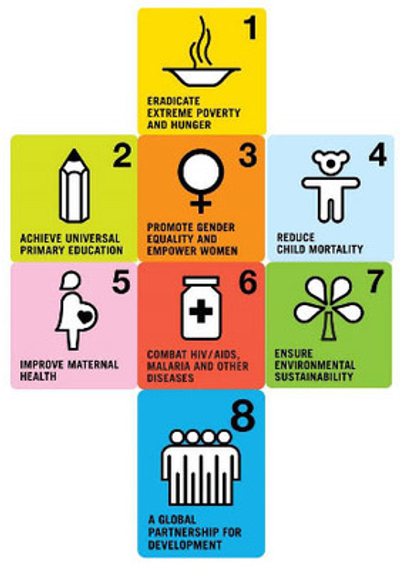Globally, the subjects you will be reading about on this blog vary in degrees: this is because of the wide coverage of the subject area we are going to be dealing with – Managing for Development Results (MfDR).
Let me here again try and justify this. The term Managing for Development Results came as a results of trying to make development work in developing countries and that was after the adoption of the Millennium Development Goals (MDGs) in year 2000.

The MDGs and its eight goals, eradicating extreme poverty and hunger, achieve universal primary education, promote gender equality and empower women, reduce child mortality, improve maternal health, combat HIV/AIDA, malaria and other diseases, ensure environmental sustainability and improve on the global partnership for development, was adopted to help governments improve the conditions of their citizens by eradicating poverty and improving their approaches to environmental management, health delivery, gender parity etc. by year 2015.
All of these goals have multiple components and tally with other international agreed development goals such as on environmental management, litigation and sustainable development policies, gender equality, combat against HIV/AIDS, to mention a few.
The MDGs is therefore a development agenda that serves as a meeting point for many earlier and present development programmes that are being administered under the auspices of the United Nations.
The last goal, improving the global partnership for development, actually called on donor countries to continue to assist development countries financially in poverty eradication and other aspects of development. It is from here that the issue of aid effectiveness, where the productivity of financing development was at the centre of discussions. This brought about strategies that stressed on improving government apparatus and institutions for improved service delivery.
The issue of placing results over process and institutions over people was at the centre of action for aid effectiveness. While discussions on aid effectiveness led to the recognition of ownerships in development management in, developing countries, where it is found to be appropriate for development actions to be tailored according to needs and local realities, the notion of one-size-does-not-fit-all has engendered actions of development agencies towards decentralization and overhauling of development delivery process.
Results-Based Management is an approach to public sector management with a focus on performance and results has been introduced by development agencies and more recently by the United Nations Organization. IT is supposed to help government delivering the basic service to its citizens by imploring on process and capacity building that bring value to public expenditure and should apply to all areas, from vision to planning, policy making and the public administration system.
Whether it is about environmental protection, public health management, food and agriculture, infrastructural development and the link between leadership and execution of programmes at the grassroots level, RBM as a pillar of managing for development results apply and it is necessary that all stakeholders are aware of its principles.
This blog is supposed to carry this message. As a result, my writing will lean on well researched arguments, opinions on all development issues to shed light on best practice on results-based approach.
I can assure that you will read regularly on international development, sustainable development, development goals, international organizations governance, politics political leadership, planning, monitoring and evaluation the public service, public sector management, health, poverty reduction, environmental management, gender equality, education, youth development, water supply, water resources, agricultural and rural development .etc which will provide the basis for useful information and guide for future best practices in results-based approach to programmes delivery.



